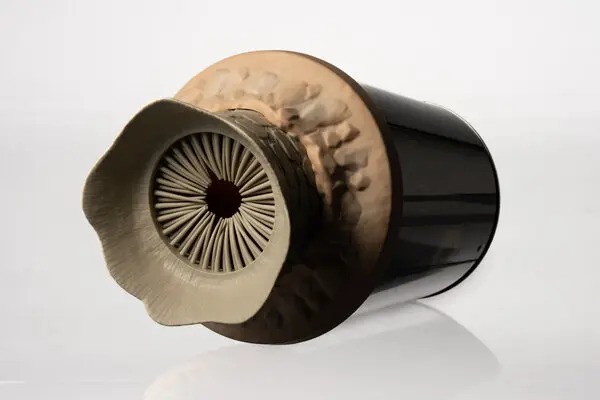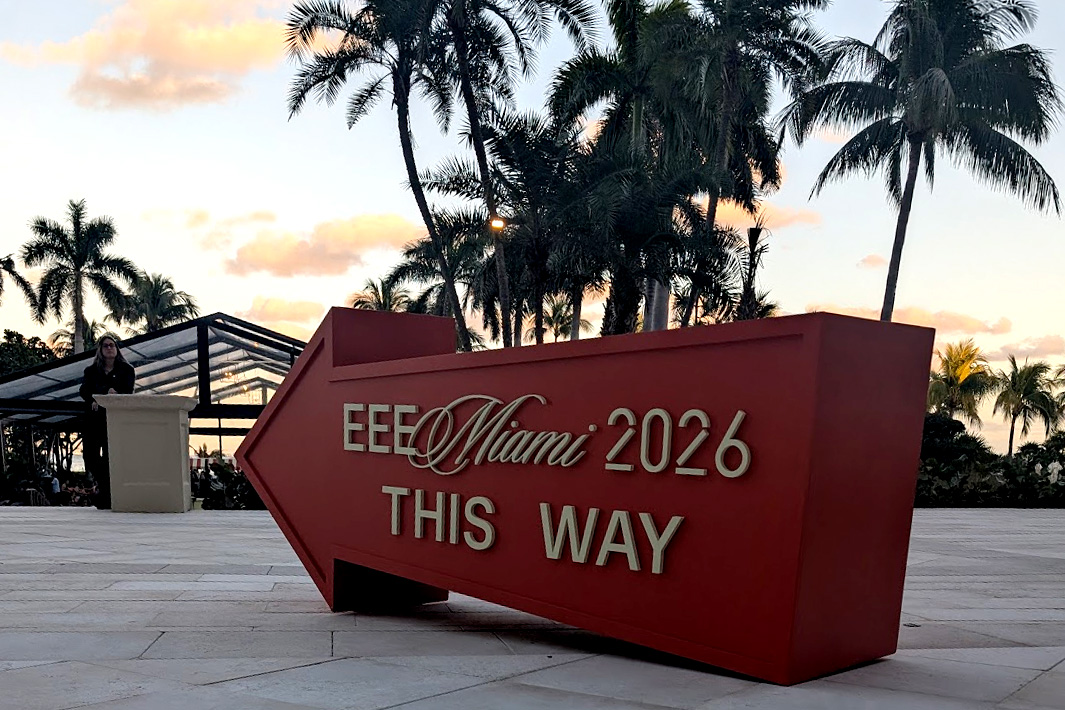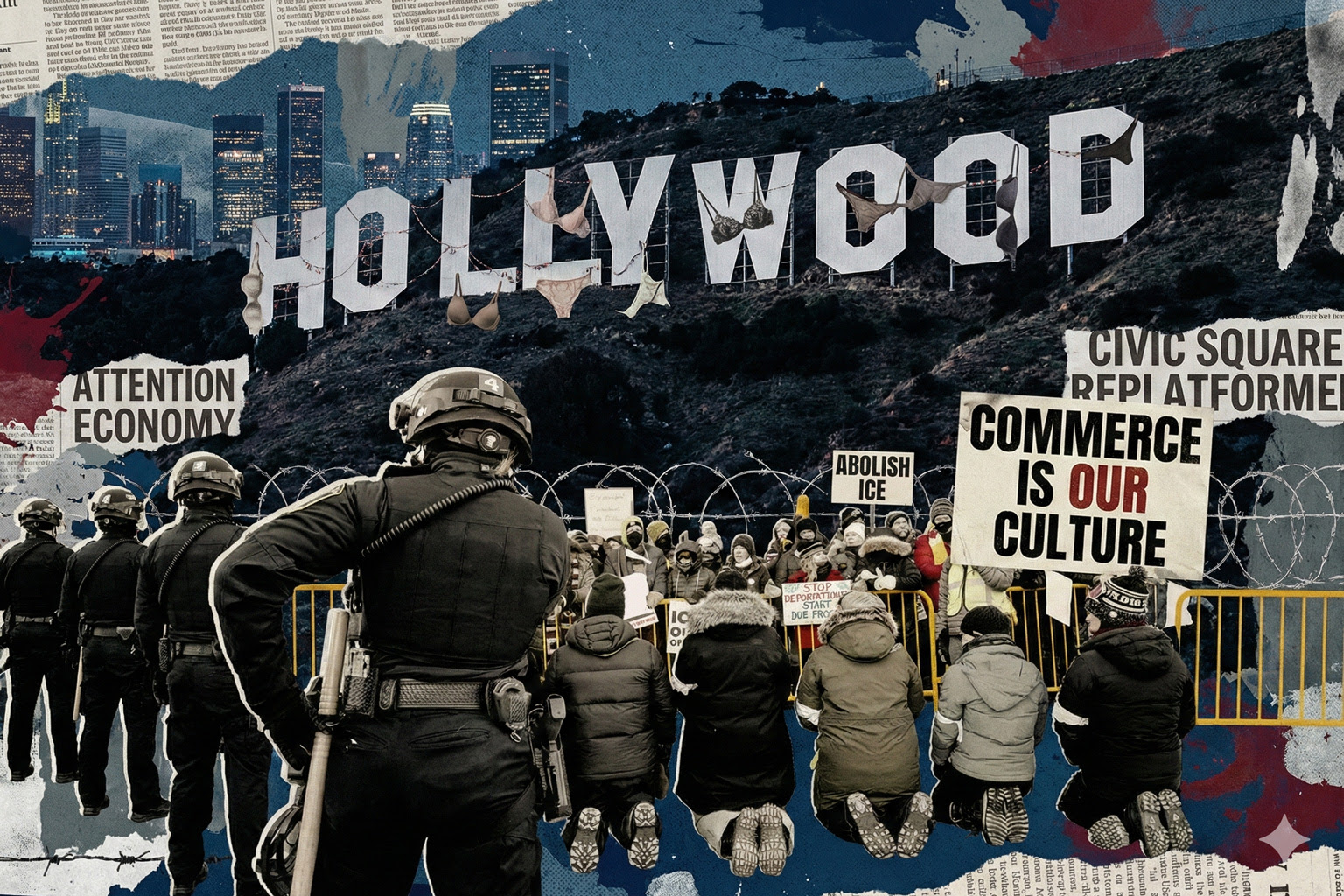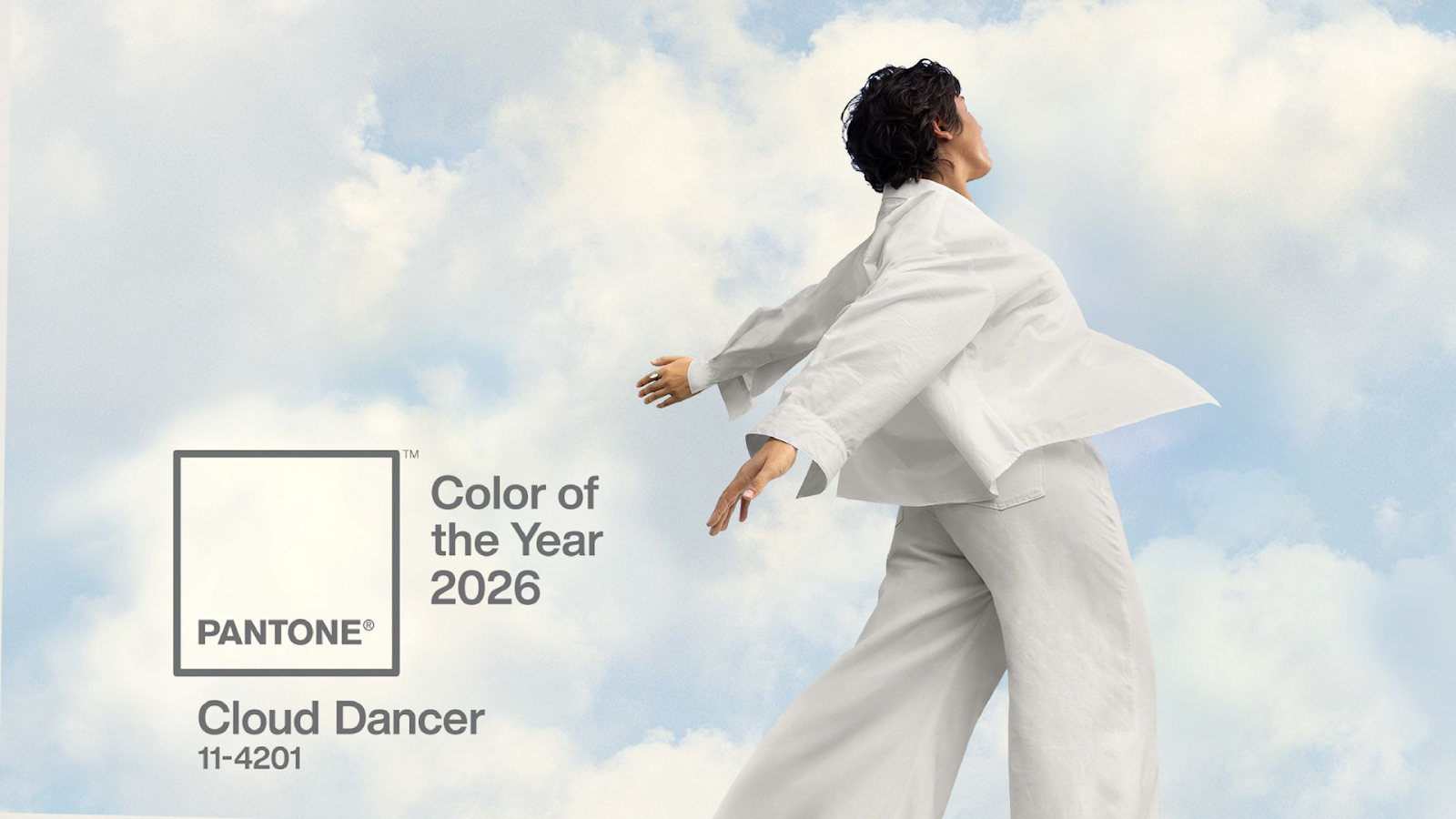
Shopping with Ghosts


Welcome to Friday, futurists; and happy Blue Screen of Death Day to all who celebrate.
Have you ever put your foot in your mouth? Well with a BSOD shoe from Nike, you can make it literal. Following today’s historic global IT outage due to a flawed over-the-air update from cybersecurity vendor Crowdstrike, the nostalgia feels more like present trauma. Besides a global travel interruption, Commerce was also impacted.
“Retailers including Morrisons and Ladbrokes in the UK, McDonald's in Japan, and Woolworths in Australia all reported issues with payment systems, forcing some to accept cash only for a period of time,” reported RTE, the Irish national public media service.
In April, I declared that our biggest achievement of the decade was that we “solved the BSOD (blue screen of death)”—the infamous Windows error screen. At the time it felt like a nostalgic relic of a prior era of personal computing. In hindsight, it seems fitting that the past is never really in the past.
Our culture is currently experiencing what modern philosopher Paul Virilio called ‘static pileup.’ “The aesthetics of disappearance are the aesthetics of static pileup,” wrote Virilio in 1991. “The sudden materialization of the whole, the wholeness of reality, in a single instant.”
What was old is new again, and what is new is outdated in an instant. We’re experiencing cultural stasis. Remember Hawk Tuah? Gosh, those were simpler times. Grimace’s birthday? That was an eon ago. Wait, if you’re in the UK, it’s back again.
Today’s IT outage made me nostalgic for Y2K, which is a weird thing to admit. In many ways, it might be the Y2K we never had. And that’s kind of… exciting? to my generation’s dopamine-addled brains which suffer from chronic neophilia.
The r/starbucks subreddit lit up on Friday with complaints that, while mobile orders were flowing in, the in-store label printer that signals a barista to prepare the order was affected by the outage. The result: most stores had to resort to manually looking up orders and writing them onto cups. With their hands. Like savages.
“If you never learned how to write on cups,” wrote one poster; “get out of the way and let a veteran work.”
Our dependence on technology is our strength and also our weakness. Just like our collective dependence on nostalgia for significance and relevance.
— Phillip
P.S. Shop with JFK Jr.’s Ghost. This weekend we’re turning back the clocks, looking at our predictions from last year’s historic 300th episode of the Future Commerce podcast. Following a year of AI discourse, SAG strikes, and ScarJo’s public courtship refusal to SamA, we’re still asking: are parasocial relationships (still) the future of Commerce? Listen to the podcast on Apple or Spotify.
P.P.S. Beauty's New Arena. Traditional influencers step aside, brands are going for the gold in women’s sports. Female athletes have become the fresh face of authenticity in beauty. From sweat to shine, this unexpected alliance is redefining both industries. Alexa Lombardo and Candace Stewart dive deep in Insiders #177: Game Face.


Bucketmania. The Dune-inspired sandworm-butthole popcorn bucket may not have been the first to command multiples on resale sites, but its virality has created a new awareness for the collector’s items. The next crop of buckets is where the unhinged and the opulent collide; the $25 (sans popcorn!) buckets prove that the commemorative bucket is the final boss of capitalism.
Notable buckets include the Alien: Romulus bucket, which loads popcorn into the phallic part of H.R. Giger’s creature; and the Deadpool x Wolverine bucket, which suggests that Hugh Jackman is chipmunking your overpriced vehicles for imitation butter. Not to be left out, Disneyland has a (checks notes) molded plastic ice cream truck that contains more than your daily caloric allowance of creamery treats. Conveniently it also doubles as a crossbody bag.


Offline Ceramics. After eight years of creative collaboration, the founders of Online Ceramics are parting ways. Their final project together is a coffee table book celebrating their journey, published by A24. We last cited Online Ceramics virality in Insiders #169: “The Pursuit of Cool”.
I Wanna Dress You Like an Animal. What better way to celebrate the 30th anniversary of Nine Inch Nails' "The Downward Spiral" than purchasing a limited edition Dr. Martens 1460, inspired by the album's artwork? Trent Reznor and Atticus Ross may not have officially signed off on the three planned silhouettes, but last I checked I don’t need their permission to lace up 10-eyelet platform Docs at forty-three years old.


Hydrate with Coconuts. Coconuts are airport security-approved, despite being a container with more than 3.2 fluid ounces of liquid in them… making them a clever way to bring “electrolytes” on your flight. Or, at least they were until Food and Wine spoiled everyone’s fun with an article about the practice.


AI Negotiation. If you hated negotiating in person, how would you like to argue with a bot for a better deal? Twitter/X user George McGowan discovered the use of an AI negotiation bot on EveSleep, a UK-based online mattress brand.
Our Take: Nibble, the company behind the negotiation bot, is a UK-based SaaS company. The Shopify app is free up to 100 negotiations/month, or 2% of sales with a minimum fee of $499 if you exceed 100 negotiations; meaning that McGowan’s viral post may have cost EveSleep dearly in SaaS fees.
Just do the math, though. After the Meta tax and cc fees, how much margin is there left to give to the AI to negotiate—and then they take 2%? It makes little sense outside of ‘thin brands’—those who hold little to no inventory and pass through costs to dropshippers.
What nobody’s talking about is that Nibble’s “Negotiate” CTA button is sitting just below the traditional Add to Cart. This could be a new UX pattern beginning to emerge; low-friction experiences vs higher-friction experiences that trade engagement and zero-party data-gathering opportunities for a fraction of the margin.
Underconsumption? Or Luxurification? The trend of underconsumption is gaining traction on TikTok, with young consumers focusing on “sustainable shopping habits” and avoiding unnecessary purchases. Still, most of the advice advocates for buying ‘fewer, better’ which feels like a circular excuse to continue to consume; which is a shame, because we really need to consume less.











.svg)
